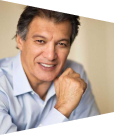Watch
Entrepreneurship & Pioneering
When considering the current state of our planet, it is clear that change needs to happen.
Whether it be the fashion or transport industry, the pollution caused by consumerism is detrimental. However, it is not only up to the consumers to make the change. The offers are limited if the brands that distribute products don’t act sustainably. They will be inaccessible to the broader masses due to their price. The demand is evident, but are the alternatives? The beauty market is broad, from body- to skin- and haircare. Many large companies need to drive change, in order to see it. How are the pioneers doing this?
The evolution of the beauty industry
The beauty industry has been at the center of steady growth over the past several years. Historians can trace the industry’s beginnings back to 4,000 B.C. – where pharaohs outlined their eyes with dark liners. It was kohl, made from ground stibnite. The beauty found its origin in many natural products. Berries, bugs, charcoal, and oils were utilized to help enhance the natural human features. Some of these remedies are still used today, however, the industry has evolved completely. With further growth projections, the industry generates over $600 billion in revenue annually. But why?
The consumers of the industry, mostly women, are on a journey of self-discovery and expression. Using different beauty products helps women achieve this. The surge in small businesses also offers a variety of products to broader masses. The accessibility to the industry is a large growth factor. Nevertheless, it is important to realize that this tremendous growth has impacted this planet.
The harmful impact of the beauty market
People used to source their beauty products from nature. Natural ingredients were used to enhance one’s features. However, as the industry has grown, so has its harmful impact. Around 70% of the waste generated within the beauty industry stems from packaging. Packaging is something that draws the consumer toward the product.
Nevertheless, consumers dispose of the packaging once the product has been used up. Furthermore, palm oil is one key ingredient in many beauty products. The high demand for palm oil has led to extensive cultivation. Palm oil plantations destroy the natural habitat of many animals. The unsustainable consumption of beauty products has a huge impact on the environment. Furthermore, many of the ingredients used in beauty items are not safe. Not for the people, and not for the environment. Greenwashing and the lack of regulations are just a few of the industry’s issues. However, there are developments in the industry that are a shimmer of hope.
Sustainability in the beauty market
As with nearly all industries, there is a visible shift towards sustainability. As with any other shift, this results from this changing consumer demand. They have become aware of the environmental impact and their health. Eco-friendly packaging is a large part of improving the industry. PCR packaging, made out of Post-Consumer Recycled material can be used to make packaging more sustainable. Furthermore, the actual formulas in the industry have been improved.
“Green” and “sustainable” products use renewable resources, therefore not destroying animals’ natural habitat due to the need for palm-oil sourcing. Additionally, many products are refilled or recycled. Nevertheless, it is important to understand the driving force behind this change. The brands. If brands do not educate their consumers about their processes, it is hard to make a change. Transparency is necessary. Furthermore, large investments in these sustainable practices are essential.
Pioneers of sustainability
Fortunately, many brands are aware of their role in saving the planet. Large brands such as Unilever have created lines such as Love, Beauty & Planet. The brand is reducing its environmental impact across all aspects of the supply chain. Dr. Hauschka is a brand that uses biodynamic farming methods to grow and source its ingredients. The packaging is mostly made out of glass and green energy is used wherever possible. There are many other brands that are following sustainable practices. One brand, in particular, is the haircare brand FEKKAI.
Frédéric Fekkai
Frédéric Fekkai opened his namesake salon in New York, creating a ground-breaking business. After selling his brand in 2008 to Procter and Gamble, Fekkai began traveling to Europe more frequently. Although he had always been passionate about sustainability, European advances in this area inspired him. He began reducing his plastic consumption and thinking about translating this into business to create an impact. In 2015 he and his wife acquired Côtê Bastide, which they revamped into a beauty and luxury homeware brand.
In his talk with Fashinnovation, Fekkai explained his goal to positively impact the environment. Despite the high cost of being a sustainable brand, Fekkai urges the importance of being proud of your creations. In his hair salons, he collaborates with Green Circle Salons. This initiative helps hair salons recycle their wasteful products. Fekkai’s passion for the environment runs deep. It is pioneers like him that carry hope in the beauty market.
Meet our guest speakers
Frédéric Fekkai is a disruptor in the beauty world. Since he opened his first salon atop Bergdorf Goodman in New York City in 1989, inventing the prestige hair care category with his FEKKAI collection in 1995, he has continuously been recognized as a forward-thinking visionary and entrepreneur. After repurchasing his namesake brand in 2018, his goal has been to prove that sustainability and clean ingredients do not compromise quality.
Julia Michault is an award-winning journalist, public speaker, and Fashion, Luxury, and Beauty consultant. She is also the Deputy Editor of Harper’s Bazaar Arabia and Harper’s Bazaar Saudi. With her 60 Second Fashion Reviews, she has brought fashion show criticism to the world of social media. Her articles have been published in the New York Times, Business of Fashion and in multiple publications of Vogue, GQ, ODDA, Antidote and Elite Traveler.
Meet your Fashinnovators

Frédéric Fekkai is a proven disruptor and innovator in the beauty world. Since the opening of his first salon atop Bergdorf Goodman in New York City in 1989 and inventing the prestige haircare category with the launch of his award-winning FEKKAI collection in 1995, he’s continued to make a name for himself as a forward-thinking visionary and entrepreneur.
Today, the author, mentor, and philanthropist furthers his legacy of pushing the boundaries of performance with a renewed enthusiasm for clean ingredients, sustainable packaging, and thoughtful formulations. Having re-acquired his namesake brand in 2018—13 years after its sale to Procter & Gamble—his goal is clear: To show that clean formulations do not have to compromise on efficacy. For proof, he’s turned his two sustainable Green Circle-certified New York City salons into living labs where all FEKKAI products are tested by professional stylists on different hair types and textures.

Frédéric Fekkai is a proven disruptor and innovator in the beauty world. Since the opening of his first salon atop Bergdorf Goodman in New York City in 1989 and inventing the prestige haircare category with the launch of his award-winning FEKKAI collection in 1995, he’s continued to make a name for himself as a forward-thinking visionary and entrepreneur.
Today, the author, mentor, and philanthropist furthers his legacy of pushing the boundaries of performance with a renewed enthusiasm for clean ingredients, sustainable packaging, and thoughtful formulations. Having re-acquired his namesake brand in 2018—13 years after its sale to Procter & Gamble—his goal is clear: To show that clean formulations do not have to compromise on efficacy. For proof, he’s turned his two sustainable Green Circle-certified New York City salons into living labs where all FEKKAI products are tested by professional stylists on different hair types and textures.

Jessica Michault is an award-winning journalist, public speaker, and Fashion, Luxury, Beauty consultant. She is also the Deputy Editor of Harper’s Bazaar Arabia and Harper’s Bazaar Saudi. Michault’s 60 Second Fashion Reviews have brought fashion show criticism to the social media sphere and her in-depth, one-on-one interviews with some of fashion’s leading movers and shakers, via her Fashion Your Seatbelt podcast, has created another avenue for fashion lovers to connect with the industry. She has worked with brands such as Miu Miu, Boucheron, Mulberry, and the Puig group, and has been the SVP of Industry Relations for Launchmetrics: The leading Brand Performance platform for Fashion, Luxury and Beauty. Her articles have been published in The New York Times, Business of Fashion, The International Herald Tribune, and in multiple top tier magazines – including numerous Vogue publications, GQ, ODDA, Antidote and Elite Traveler.

Jessica Michault is an award-winning journalist, public speaker, and Fashion, Luxury, Beauty consultant. She is also the Deputy Editor of Harper’s Bazaar Arabia and Harper’s Bazaar Saudi. Michault’s 60 Second Fashion Reviews have brought fashion show criticism to the social media sphere and her in-depth, one-on-one interviews with some of fashion’s leading movers and shakers, via her Fashion Your Seatbelt podcast, has created another avenue for fashion lovers to connect with the industry. She has worked with brands such as Miu Miu, Boucheron, Mulberry, and the Puig group, and has been the SVP of Industry Relations for Launchmetrics: The leading Brand Performance platform for Fashion, Luxury and Beauty. Her articles have been published in The New York Times, Business of Fashion, The International Herald Tribune, and in multiple top tier magazines – including numerous Vogue publications, GQ, ODDA, Antidote and Elite Traveler.
SHARE
DISCOVER MORE OF WHAT MATTERS TO YOU
- Watch next
- Playlists
Subscribe to our
newsletter
The latest in fashion and innovation trends.
Receive amazing & timely content.
